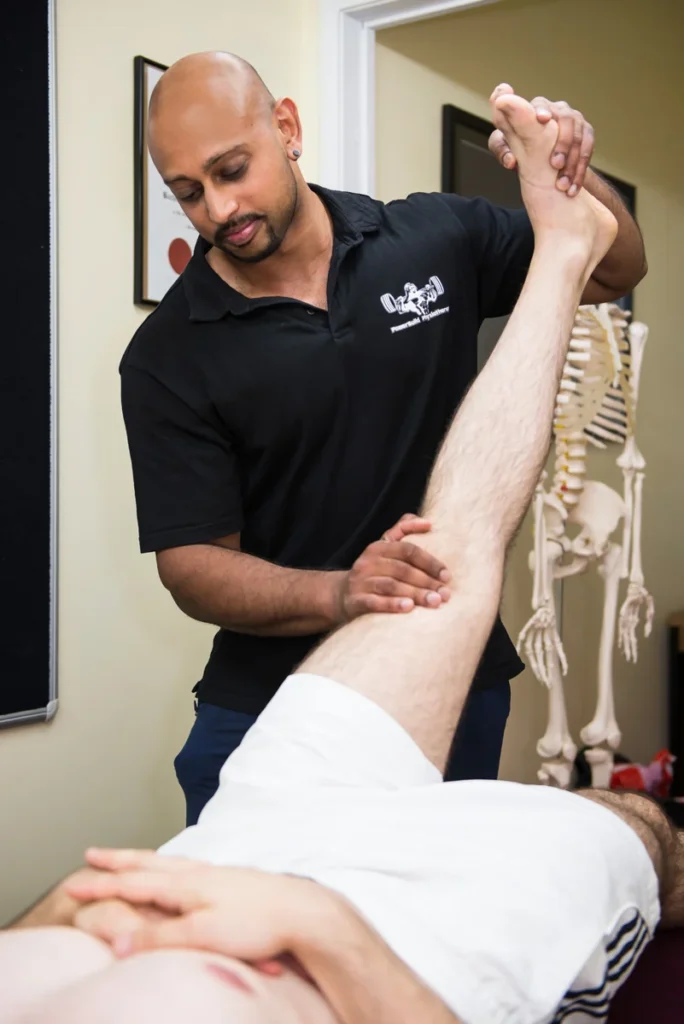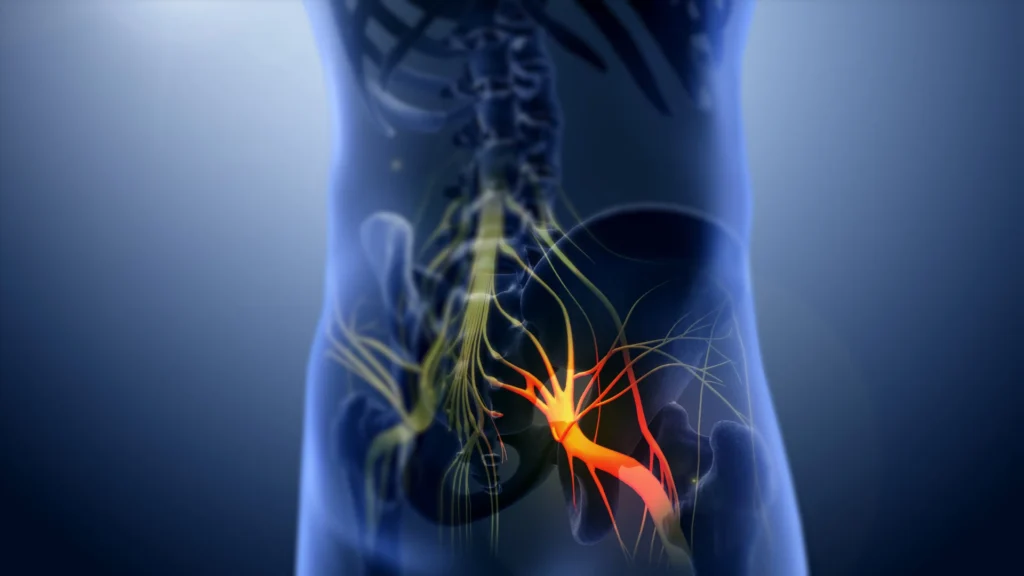
What is Sciatica?
The term ‘sciatica’ is a term that is poorly defined in research and the online world. At PowerBuild Physiotherapy we use the definition that is described in the clinical care standard: sciatica or radicular pain is pain going down the leg that is thought to involve irritation or compression of one or more nerves in your spine. Sciatica/radicular pain is a symptom and not a pathology- the pathology is to the nerve root itself.
What causes Sciatica:
As mentioned previously, symptoms are usually a result of irritation or compression to the nerves in the lower back, specifically the lumbosacral nerve roots (i.e. L1-S1 nerve roots). The most common causes of nerve root compression in the lower back are disc bulges and disc herniations. This compression can cause irritation to the nerve root which results in the sciatica symptoms. The nerve root can also be irritated without direct compression from a disc, which is usually due to local inflammation where the nerve root lies.
Factors that may increase the risk of developing nerve root related leg pain:

- Smoking
- Obesity
- Manual work or labour
- Work involving bending down frequently or repetitively
- Driving or sitting for prolonged periods
What does Sciatica feel like:
Common pain location:

- pain in the buttock
- pain that is typically worse in the leg than low back
- pain extends down the leg past the knee
- typically pain in one leg (though not always)
Common Aggravating Activities:
- bending over
- sitting for prolonged periods
- bending at the hips/lifting leg ups
Type of pain sensation:
- sharp pain
- shooting pain
- stabbing pain
- aching pain
- electric shock pain
Additional symptoms that may accompany ‘sciatica pain’:
- pins and needles
- reduced or loss of sensation in the lower extremity
- muscle weakness in the lower extremity
- pain triggered by light pressure
- burning sensation
Not all leg and buttock pain are sciatica. There are many other structures in the lower back,
buttocks and leg that can produce similar symptoms. Potential differential diagnoses include:

- Peripheral nerve neuropathies
- Deep gluteal syndrome
- Spinal stenosis
- Peripheral artery disease
- Deep vein thrombosis
- Hip osteoarthritis
- Cauda equina syndrome
- Greater trochanteric pain syndrome
If you have sciatica-like symptoms and would like a full diagnosis, click the booking link on our website to get help from our experienced physiotherapists.
